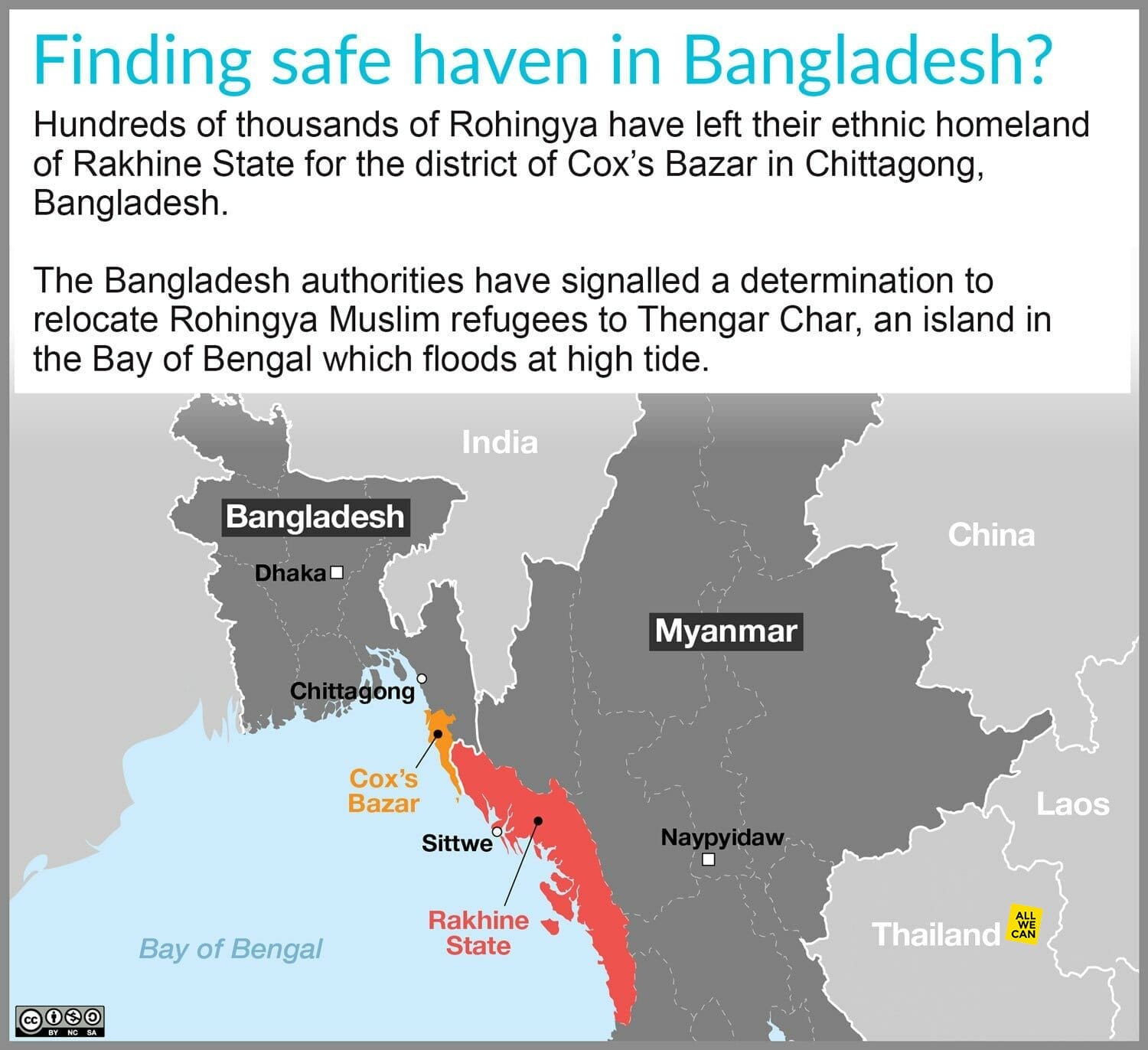No permission to exist: the story of the Rohingya people
A people without a country, an ethnic group with no official status: The world’s approximately 1.5 million Rohingya have been disowned by Myanmar, the country they used to call home and are at the crux of an enormous humanitarian crisis.
Even the name by which Muslim inhabitants of Myanmar’s Rakhine province call themselves is politicised, with the term Rohingya considered by authorities a self-selected identity. Accounts of Rohingya being refused citizenship, standard civil rights and basic police protection are rife. Many Rohingya claim they are the victim of deep-set institutionalised discrimination, saying that – unlike their neighbours – Rohingya in some villages are only allowed to have two children and allege that permission to marry often requires a police bribe.
An ethnic group with a language, customs, and religion that sets them apart from the predominately Buddhist population of Myanmar, the Rohingya have been considered sub-citizens throughout the region’s history. Their province, Rakhine, is the second poorest state in Myanmar, and even before the current crisis of persecution it was estimated that 43.5 percent of the region’s population was living below the poverty line.
In August 2017, the Arakan Rohingya Salvation Army (ARSA), a rebel group around 500 strong, attacked Myanmar police and government posts with sharpened bamboo poles, machetes, and home-made bombs. They claimed they were fighting for civil rights and in response to the systematic mistreatment of their people over decades.
In retaliation, the Myanmar police rose up against the Rohingya minority, allegedly shooting civilians, burning homes, and laying landmines around Rohingya villages. Almost half the Rohingya population has already fled into neighbouring Bangladesh and other countries such as Malaysia, Thailand, and Indonesia. Even today the exodus continues, with new arrivals at the Bangladeshi refugee camps telling horror stories of villages burned and looted, wives and sisters sexually assaulted, and women and children shot by government-sponsored militants.
According to Amnesty international, more than 80 Rakhine villages have been burned in government-sponsored raids. Although the Myanmar government denies charges of violence and claims to be only running an anti-terror operation, they acknowledge that 40 percent of 471 Rohingya villages have been the targets of what are referred to as “clearance operations’. Of these, 176 villages are reported to be completely emptied of people, with another 34 ‘partially abandoned’.
Bangladesh may be seen as the promised land for the thousands of Rohingya flooding the borders, but is woefully ill-equipped to deal with the numbers coming from Myanmar. UNICEF reports officials are able to ration out barely a litre of water a day to refugees in the makeshift camps, and food and other essential supplies are in similar short supply. The majority of those in camps are women and children.
All We Can is responding to the urgent humanitarian need in Bangladesh and is initially supporting the provision of food for Rohingya refugees through its Rohingya Refugee Crisis Appeal.
The shortcode is missing a valid donation form ID attribute.
[thrive_link color=’blue’ link=’http://www.allwecan.org.uk/donate/current-appeals/rohingya-refugee-crisis-appeal/’ target=’_self’ size=’medium’ align=”]Read more about All We Can’s work with the Rohingya[/thrive_link]

